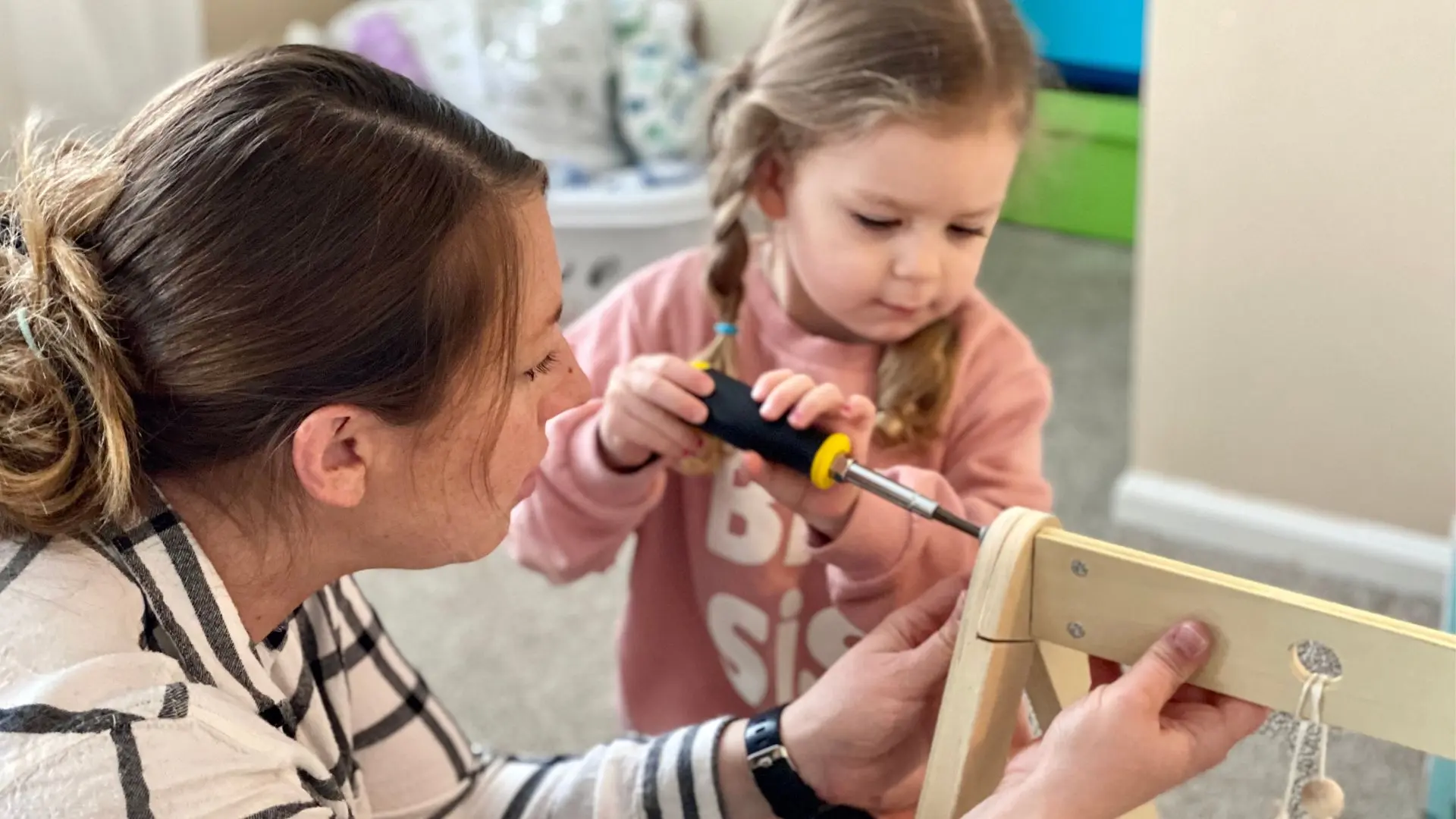Unveil the Traits of a Good Mother with these 25 powerful qualities. Discover how to nurture confident, resilient, and happy children.

Every child deserves a nurturing environment, and the traits of a good mother play a vital role in creating that space. These traits not only shape a child’s emotional and psychological well-being but also set the foundation for their future relationships and success. Let’s explore some of the essential traits that define a good mother.
Top Traits of a Good Mother to Raise Happy and Confident Children
Here are these:
1. Unconditional Love
At the core of the traits of a good mother is unconditional love. When children feel loved without conditions, they develop a strong sense of self-worth. This love manifests in everyday interactions—a comforting hug after a rough day or a simple “I love you” can significantly impact a child’s confidence.
2. Emotional Support
Another crucial trait is emotional support. A good mother is always there for her children during tough times, providing a shoulder to cry on or a listening ear. This support teaches children that it’s okay to feel vulnerable and that expressing emotions is a natural part of life.
3. Effective Communication
Effective communication is a fundamental aspect of the traits of a good mother. By encouraging open dialogue, mothers can foster trust and understanding. Family discussions over dinner, where everyone shares their highs and lows, can strengthen the family bond and help children feel valued.
4. Empathy
Empathy is one of the most powerful traits of a good mother. When mothers demonstrate understanding and share in their children’s feelings, they help develop emotional intelligence. For example, if a child is upset about a friendship issue, a mother’s empathetic response can guide them through their feelings and teach them how to express themselves.
5. Patience
Patience is vital in parenting. Every mother knows that guiding children through learning moments—whether it’s mastering a new skill or navigating social dynamics—requires time and understanding. A patient mother creates a calm atmosphere where children feel safe to learn and grow.
6. Strong Work Ethic
A strong work ethic is another trait that can be passed down. When mothers model dedication and perseverance, they instill these values in their children. A mother who balances work and family demonstrates the importance of commitment and hard work, teaching her children that effort pays off.
7. Consistency
Consistency in parenting is crucial for developing security in children. The traits of a good mother include establishing routines and setting clear expectations. This predictability helps children know what to expect, which fosters a sense of stability in their lives.
8. Encouragement
Encouragement is a powerful tool in a mother’s toolkit. Celebrating achievements, no matter how small builds confidence and reinforces the idea that effort matters. Whether it’s acknowledging a good grade or a new skill, encouragement helps children develop a growth mindset.

9. Setting Boundaries
Setting boundaries is an essential trait of a good mother. Clear limits create a safe environment where children learn respect and responsibility. When mothers establish rules and consequences with love, they help their children understand the importance of boundaries in their relationships.
10. Teaching Resilience
Teaching resilience is vital in today’s world. Life is full of challenges, and children need to learn how to bounce back from setbacks. A good mother demonstrates resilience in her own life and guides her children to face adversity with courage and determination.
11. Role Modeling
The traits of a good mother also include being a positive role model. Children often emulate their parents’ behaviors. By embodying values like kindness, honesty, and responsibility, a mother sets an example for her children to follow, influencing their character development.
12. Nurturing Nature
A nurturing nature is fundamental to the role of a mother. Creating a loving and warm environment allows children to feel safe and secure. Simple gestures—like cooking their favorite meal or spending quality time together—contribute to this nurturing atmosphere.
13. Flexibility
Flexibility is another important trait of a good mother. Each child is unique, and a one-size-fits-all approach rarely works. A flexible mother adapts her parenting style to meet her children’s individual needs, showing them that it’s okay to embrace change.
14. Teaching Life Skills
Equipping children with essential life skills is a significant trait of a good mother. Whether it’s teaching them how to cook, manage money, or handle responsibilities, these skills prepare children for adulthood and foster independence.
15. Problem-Solving Skills
Another important trait of a good mother is effective problem-solving. Life is full of challenges, and teaching children how to tackle problems logically and creatively equips them for future obstacles. A mother who approaches issues calmly and constructively sets a powerful example.
16. Conflict Resolution Skills
A good mother teaches her children how to resolve conflicts constructively. Life is filled with disagreements, and knowing how to navigate these situations is crucial. By guiding children through conflict resolution, mothers empower them to handle challenges maturely.
17. Open-Mindedness
Open-mindedness is a trait that fosters creativity and learning. Encouraging children to explore different ideas and perspectives helps them develop critical thinking skills. A mother who embraces diversity in thought promotes a richer understanding of the world.

18. Advocacy
Being an advocate for her children is a vital trait of a good mother. Whether it’s standing up for their needs in school or healthcare settings, a mother ensures her child’s voice is heard and their rights are protected.
19. Self-Care
Self-care is often overlooked but essential for effective parenting. A good mother recognizes that taking care of herself allows her to be a better caregiver. By prioritizing her well-being, she models the importance of balance and self-respect.
20. Fun and Playfulness
Finally, fun and playfulness are key components of a happy family life. Engaging in playful activities strengthens the bond between mother and child. Whether it’s game nights or spontaneous adventures, these moments of joy create cherished memories.
21. Equal Treatment of Children
A good mother ensures that all her children feel equally loved and valued. Prioritizing one child over another can lead to jealousy and resentment. However, if one child is misbehaving, a mother should address the behavior while still making it clear that her love remains steadfast for all. This balance fosters a sense of security and fairness among siblings.
22. Teaching Safety and Awareness
A good mother teaches her children about safety and how to recognize potentially harmful situations. This includes discussions about personal boundaries and how to seek help from trusted adults. By empowering children with this knowledge, she prepares them to navigate the world confidently.
23. Preparing for Real-world Challenges
Mothers also play a crucial role in preparing their children for real-world challenges. By discussing practical matters—like managing finances, understanding relationships, and handling job responsibilities—a mother equips her children with the tools needed for adulthood.
24. Empowering through Skills
Empowerment through skill-building is a key trait of a good mother. Whether it’s teaching them how to ride a bike or encouraging their academic pursuits, she helps her children discover their strengths and capabilities. This empowerment fosters independence and self-confidence.
25. Healthy Boundaries with Technology
In today’s digital age, a good mother understands the importance of setting healthy boundaries with technology. By monitoring screen time and encouraging offline activities, she teaches her children to have a balanced relationship with technology.
Conclusion
In summary, the traits of a good mother encompass a wide array of qualities that contribute to a child’s happiness and development. By embracing these traits, mothers can create nurturing environments where their children feel loved, supported, and prepared to face the world.
Each quality plays a significant role in shaping confident, resilient, and well-adjusted individuals. As you reflect on your journey as a mother, consider how you can continue to cultivate these traits and foster a loving and supportive atmosphere for your children.
What qualities do you believe make a mother truly great? Drop a comment below and let’s exchange ideas, insights, and personal stories. Your thoughts matter!
You may also be interested in : Top 25 Traits of A Good Parent and How to Embody Them